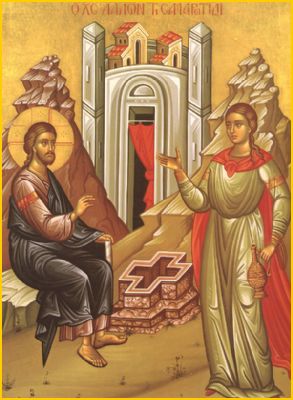Related Research Articles
Ivana is a feminine given name of Slavic origin that is also popular in southern Ireland, France, French-speaking Canada, the Mediterranean and Latin America. It is the feminine form of the name Ivan, which are both the Slavic cognates of the names Joanna and John. It may also be spelled as Ivanna.
Babić is a Croatian, Bosniak and Serbian family name. It is the 3rd most frequent surname in Croatia and is derived from the common Slavic word for grandmother or old woman: baba.
Bojan is a Slavic given name, derived from the Slavic noun boj "battle." The ending -an is a suffix frequently found in anthroponyms of Slavic origin. The feminine variant is Bojana. The name is recorded in historical sources among Serbs, Bulgarians, Czechs, Poles, Croats, Slovenians, Macedonians, Ukrainians and Russians. In Slovenia, it is the 18th most popular name for males, as of 2010.
Tanja is a feminine given name. It may refer to:

Marija is a feminine given name, a variation of the name Maria, which was in turn a Latin form of the Greek names Μαριαμ, or Mariam, and Μαρια, or Maria, found in the New Testament. Depending on phonological rules concerning consecutive vowels or the use of the palatal approximant, "Mary" in these languages is Marija if consecutive vowels are disallowed and otherwise Maria.

Nikola is a given name which, like Nicholas, is a version of the Greek Nikolaos (Νικόλαος). It is common as a masculine given name in the South Slavic countries, while in West Slavic countries it is primarily found as a feminine given name. There is a wide variety of male diminutives of the name, examples including: Niko, Nikolica, Nidžo, Nikolče, Nikša, Nikica, Nikulitsa, Nino, Kole, Kolyo, Kolyu.

Svetlana is a common Orthodox Slavic feminine given name, deriving from the East and South Slavic root svet, meaning "light", "shining", "luminescent", "pure", "blessed", or "holy", depending upon context similar if not the same as the word Shweta in Sanskrit.
Martinović is a patronymic surname meaning 'son of Martin', and is a common surname in Bosnia and Herzegovina, Croatia, Montenegro and Serbia. Its Hungarian form is Martinovics.
Snežana, also transliterated Snezhana, is a Slavic, Circassian, and Lithuanian feminine given name, possibly derived from sneg ("snow") and žena ("woman"). It is popular in former Yugoslavia, Russia and Bulgaria. Other spellings include Snježana and Sniježana, found in Ijekavian-speaking areas. Snežana was the fifth most popular name in North Macedonia in 2011. In the decade from 1960 to 1970 Snežana was the most popular name in Serbia. Based on research conducted on 31 December 2007 by the Statistical Office of Slovenia, Snežana and Sergei were the 198th most common personal names in Slovenia.
Milena is a feminine given name of Slavic origin derived from "mil" meaning "gracious", "pleasant" or "dear". It is the feminine form of the male names Milan and Milen. It is popular in Slavic countries such as Serbia, Montenegro, Poland, Bulgaria, the Czech Republic, Ukraine, Croatia, Russia, Belarus, as well as other countries.
Mandić is a Serbo-Croatian surname, a matronymic of the feminine given name Manda, a hypocorism of Mandalena, a variant of Magdalena imported from Italian.
Milka is a feminine given name found in Bulgaria, Slovenia, Croatia, Bosnia, Serbia and Montenegro. Notable people with the name are as follows:
Mirjana is a South Slavic feminine given name meaning ′mir′. The name is widespread throughout Slovenia, Croatia, Bosnia and Herzegovina, Montenegro and Serbia.
Zlatko is a South Slavic masculine given name. The name is derived from the word zlato meaning gold with hypocoristic suffix -ko common in South Slavic languages.
Lovrić is a Croatian and Serbian surname. It is probably one of the many surnames derived from the Kačić noble family.
Luka is a Slavic masculine given name. It may also be a transliteration of the Japanese name Ruka.
Ivo is a masculine given name, in use in various European languages. The name used in western European languages originates as a Normannic name recorded since the High Middle Ages, and the French name Yves is a variant of it. The unrelated South Slavic name is a variant of the name Ivan (John).
Jasmina, sometimes Jasminka, as a feminine variant, and Jasmin, sometimes Jasminko, as a masculine variant, are given names used in Bosnia and Herzegovina, Croatia, Macedonia, Montenegro, Serbia, Bulgaria and Slovenia, and same as a given name Jasmine, which is the common form in German, Romance and English-speaking countries, although almost always as a feminine variation.
Lidija is a feminine given name. Notable people with the name include:
Vlado is a Slavic masculine given name. Notable people with the given name include:
References
- ↑ "Most frequent male and female given names by year of birth, 2011 Census". Census of Population, Households and Dwellings 2011. Zagreb: Croatian Bureau of Statistics. December 2012.